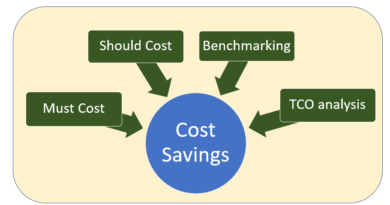What to Look for in A Solar Battery
What is a Solar Battery?
A solar battery is a key component in any solar energy system. It is used to store the excess energy generated by your panels so it can be used when needed throughout the day or night. The type and size of battery you need will depend on your individual needs and the size of your system. When choosing a solar battery for your home, there are several factors to consider, such as capacity, charging speed, round-trip efficiency, lifespan, warranty and cost.
Capacity refers to how much energy a solar battery can store at one time. This is measured in kilowatt-hours (kWh). It’s important to select a battery with enough capacity to meet the demands of your home or business. You should also consider what appliances you plan on powering with the stored energy in order to determine which model best suits your needs.
Charging speed affects how quickly your batteries can be charged up again once they have been depleted. Faster charging times will allow you to use more of the stored energy during peak demand hours while also reducing overall costs associated with purchasing additional power from the grid during those times. Round-trip efficiency measures how much power is lost when transferring electricity between grid and storage batteries over time, so look for models with higher ratings here as well.
Advantages of Owning a Solar Battery
One of the primary advantages of owning a solar battery is that it helps homeowners save money on electricity bills. Solar batteries help store excess energy from solar panels, and can be used in homes to offset utility costs during peak usage times when electricity rates are high. Additionally, the use of solar batteries can help reduce dependence on traditional energy sources like coal, gas or oil which often have negative environmental impacts such as air pollution.
Solar batteries also provide greater reliability during power outages – since they are powered by sunlight, they remain operational even during electrical grid failures. This helps ensure household appliances such as refrigerators stay running and there is no disruption to vital services such as medical equipment or security systems in case of an emergency. Finally, solar batteries offer increased safety compared to traditional energy sources due to their lack of combustible fuel components and thus being fireproof and explosion-proof.
Capacity and Output Ratings
Capacity ratings tell you how much energy a battery can store, usually measured in kilowatt-hours (kWh). This is the total amount of energy that a battery can hold and is important to consider when choosing the right system for your home. Output ratings refer to how much power the solar battery can provide at one time, usually measured in kilowatts (kW).
The higher the output rating, the more power your system will be able to supply. It’s important to make sure that both capacity and output ratings are taken into account when selecting your solar batteries so that they are powerful enough for all of your needs. Additionally, it’s also important to make sure that each battery has adequate temperature control technology so that it won’t overheat or suffer damage while in use.
Safety and Maintenance Requirements
All solar batteries come with safety and maintenance requirements that must be followed in order to ensure the best performance. Before purchasing a solar battery, it is important to research and understand these requirements.
First, check what type of environment your battery will be operating in. If you plan on installing the battery outdoors, make sure that it is designed for outdoor use and can withstand any harsh weather conditions. Also consider whether or not the system needs waterproofing or special insulation against extreme temperatures.
Second, read about the specific maintenance instructions for your solar battery. Most batteries require regular cleaning and occasional replacement of parts like terminals and connectors. Make sure you are familiar with this process so that you can keep your system running efficiently throughout its lifetime. Additionally, consult with a professional if necessary to ensure proper installation and operation of the system.
Types of Batteries Available
The most common type of battery used in solar systems are lead-acid batteries. These batteries are relatively inexpensive and can store high amounts of energy for long periods of time. They also provide a reliable source of power even when not connected to the grid, making them ideal for off-grid applications. Lead-acid batteries require regular maintenance, however, including periodic watering and cleaning, as well as periodic charging.
Lithium-ion batteries are becoming increasingly popular for use in solar power systems due to their high energy density and low self-discharge rates. They tend to be more expensive than lead acid batteries but can last up to five times longer. Lithium ion batteries do not require as much maintenance or servicing, but they must still be monitored regularly and recharged when necessary.
Nickel cadmium (NiCad) rechargeable batteries have been around since the 1950s and are still commonly used in many solar energy systems today. NiCad cells have a higher energy density than lead acid cells yet don’t suffer from excessive self discharge like lithium ion cells do.
Cost Considerations
Cost is one of the most important considerations for any solar battery. Solar batteries can be expensive, ranging from several hundred to several thousand dollars depending on the size and type. It’s important to look at all the costs associated with a solar battery, including installation, maintenance and possible energy storage fees. Additionally, you should also factor in any available tax credits or other incentives for installing a solar battery system.
When shopping around for a solar battery, consider its capacity—the amount of electricity it can store—as well as its cycle life—how many times it can be charged and discharged before needing replacement.
Also look into the product warranties offered by each manufacturer; longer warranties may indicate higher quality products that are more likely to last longer without needing maintenance or repairs down the line. Finally, compare different brands’ prices to ensure you get the best deal possible on your new solar battery system.
Installation Requirements
The installation requirements for a solar battery are important to consider before making a purchase. To ensure that the battery works properly, there are certain specifications that must be met. The first requirement is the voltage and capacity of the battery – this will determine how much energy can be stored and generate electricity for indoor lighting and other electricity your home or business. Additionally, it’s important to check the type of battery you are purchasing as some batteries may be better suited for certain types of applications than others.
Finally, it’s essential to think about what type of mounting system you will need in order to secure the battery safely in place. This could involve special components like clamps or brackets depending on the weight and size of your solar panel system. Taking these factors into consideration when selecting a solar battery can ensure that you get one that meets all of your needs and performs optimally.
Conclusion: Making an Informed Decision
When considering a solar battery, it is important to look for the best product that meets your needs. Identifying what type of solar power system you need, how much energy you want to store and the size of the battery necessary are all essential components for making an informed decision.
Additionally, research into the brand or manufacturer and their reputation can be helpful in determining whether they offer quality products with reliable customer service. It is also important to consider warranties and guarantees offered by each company as this allows for added protection in case something goes wrong with the product.
Finally, being aware of any potential hidden costs associated with installation or maintenance is crucial when investing in a solar battery. All these factors should be taken into account before making a purchase so that customers can ensure they get the most out of their investment.




